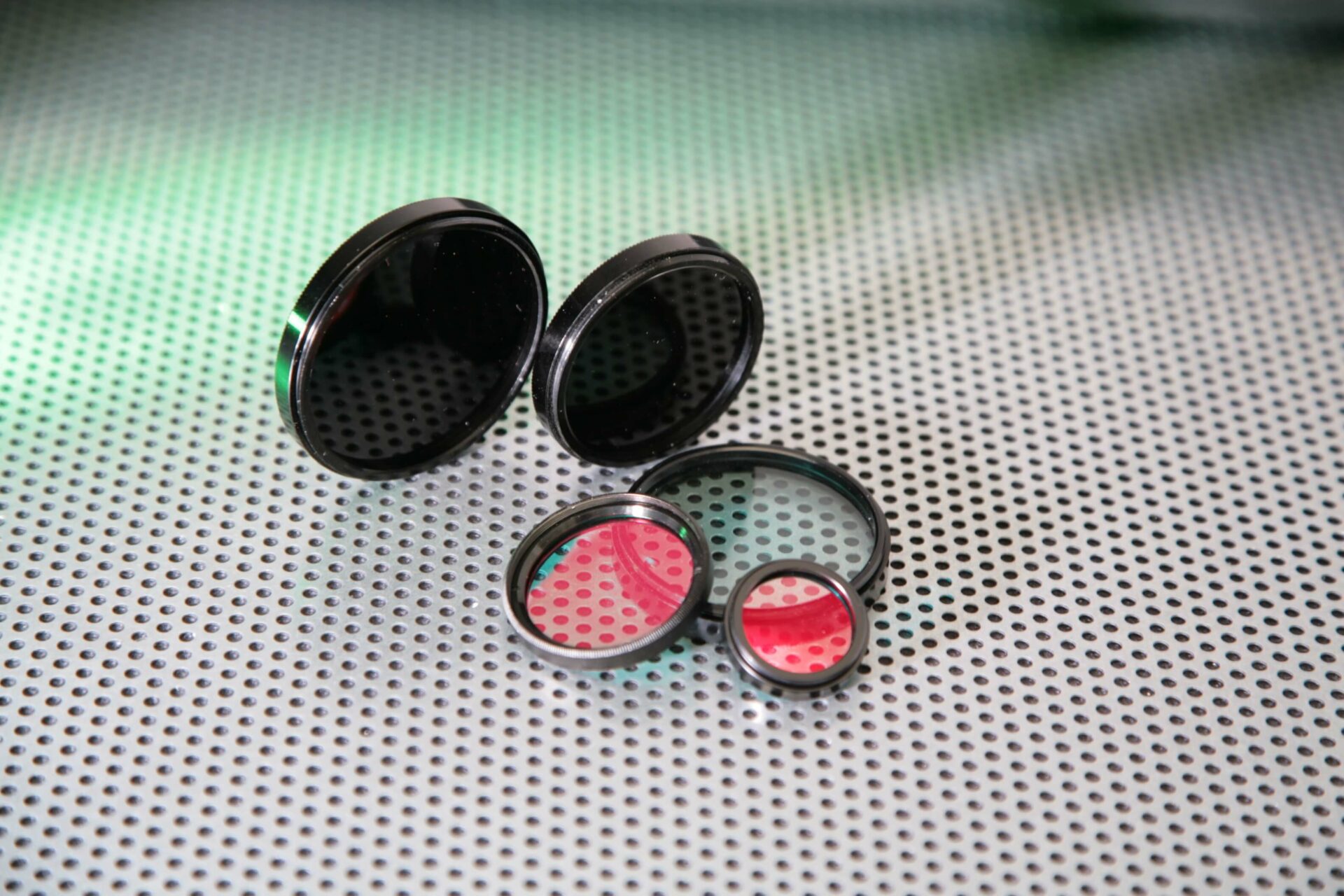Optical Filters are components which use specific glass or coatings to control a particular section of the spectrum of any light which is passing through them. Each optical filter will be designed and manufactured to either limit the spectrum of light in question or allow it to transmit. In doing so, optical filters can be used in a wide range of specialist applications.
In simple terms, there are two classes of optical filters:
Absorptive filters – Beneficial for their coating which absorbs certain wavelengths of light while allowing others to pass through. The operation of absorptive filters depends upon the materials used rather than the angle of the light, they can be cheaply added to plastic or manufactured from glass.
Dichroic/multi-layer filters – Dichroic glass filters utilise optical coatings of precise thicknesses, designed to reflect some wavelengths of light and transmit others.
Across the range of optical filters, the properties required are either embedded as a solid within the glass or applied as a multi-layered optical coating.
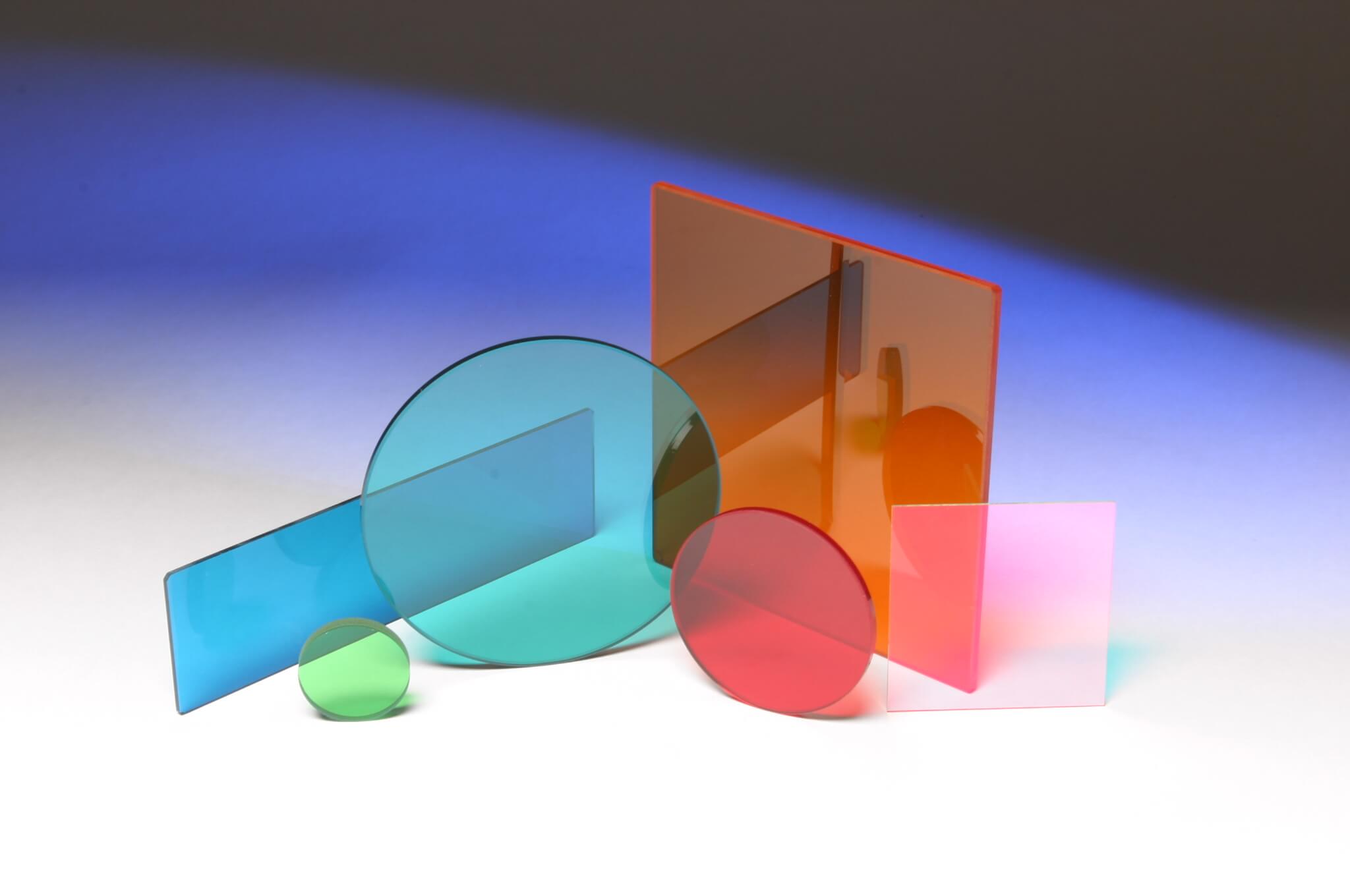
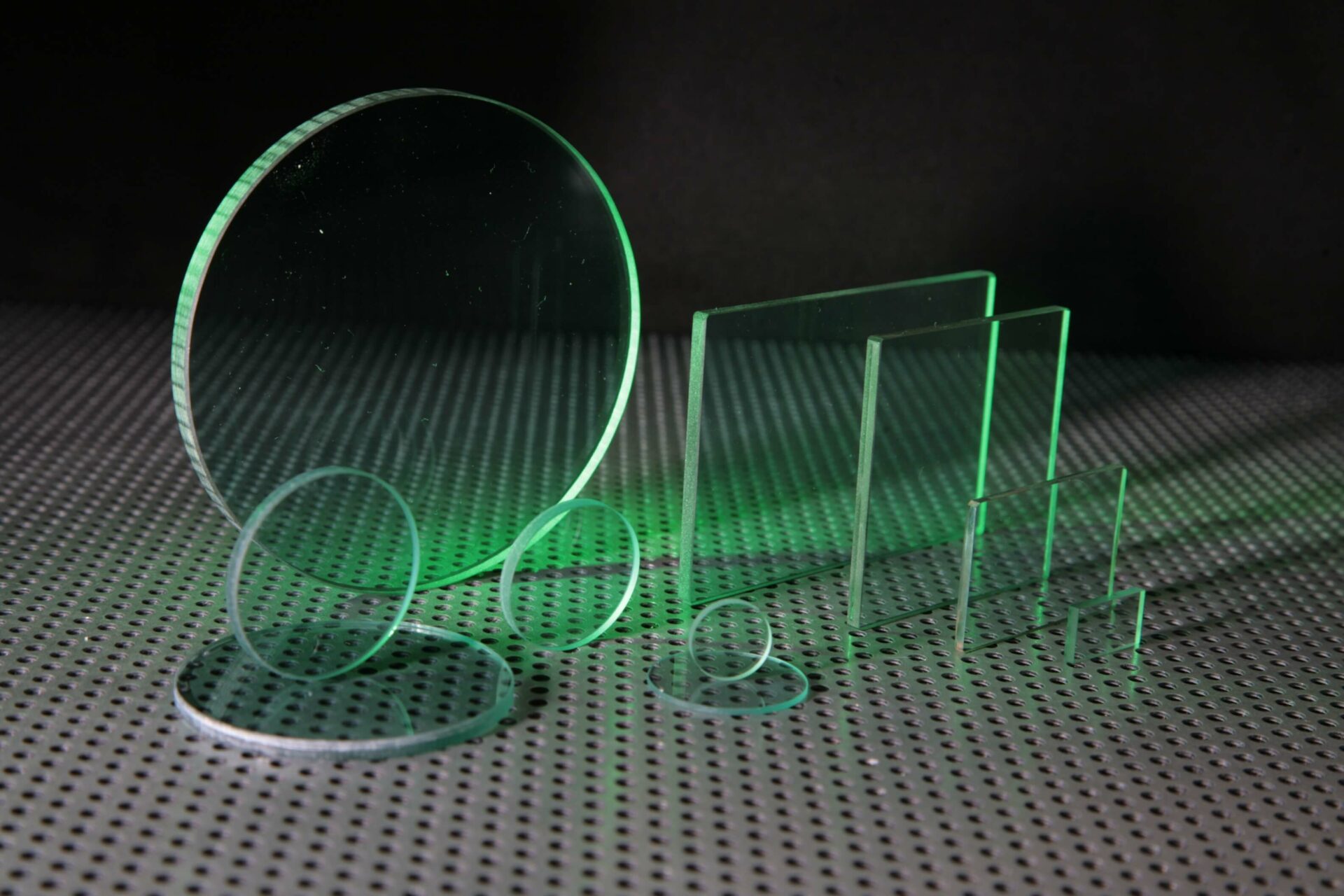
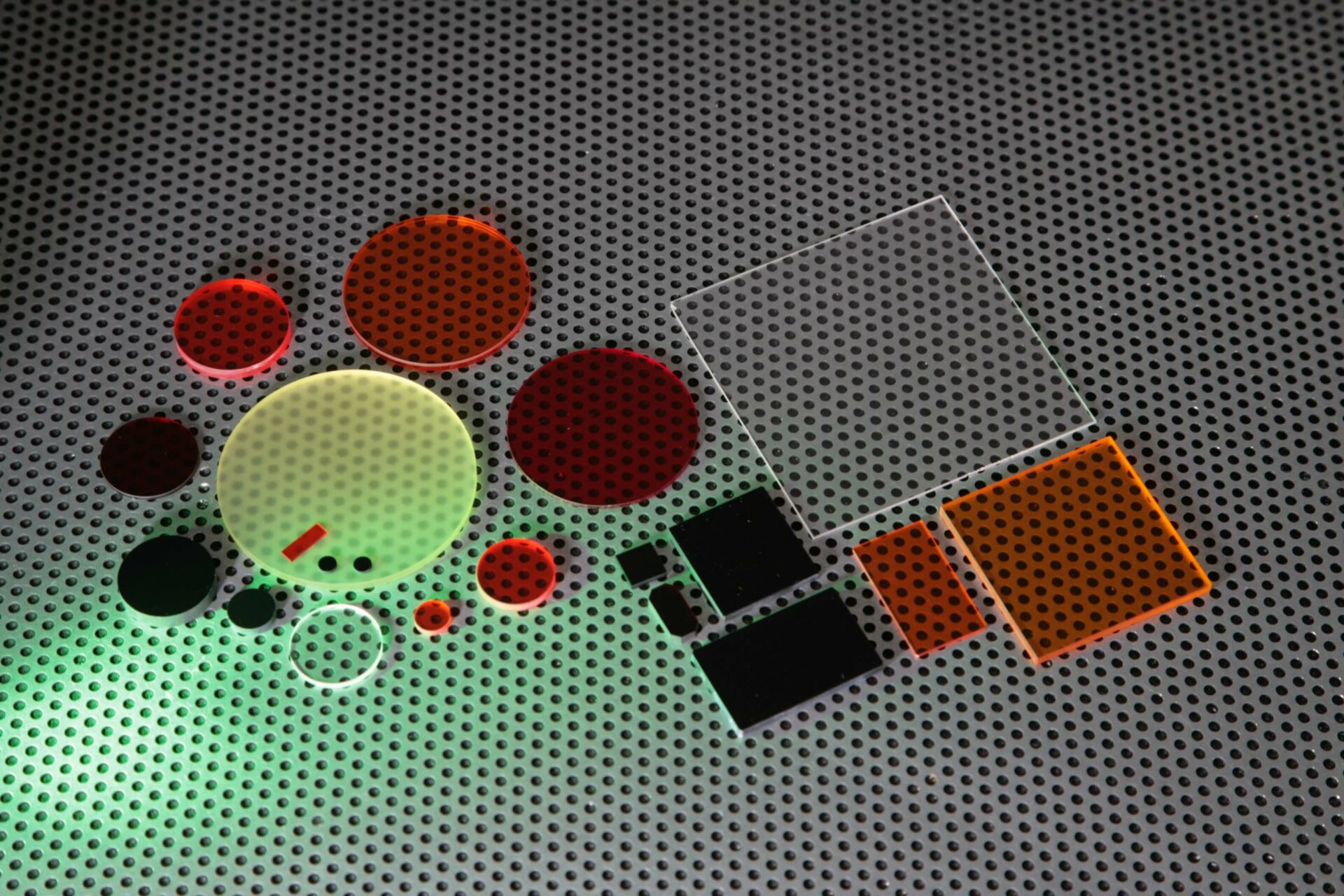
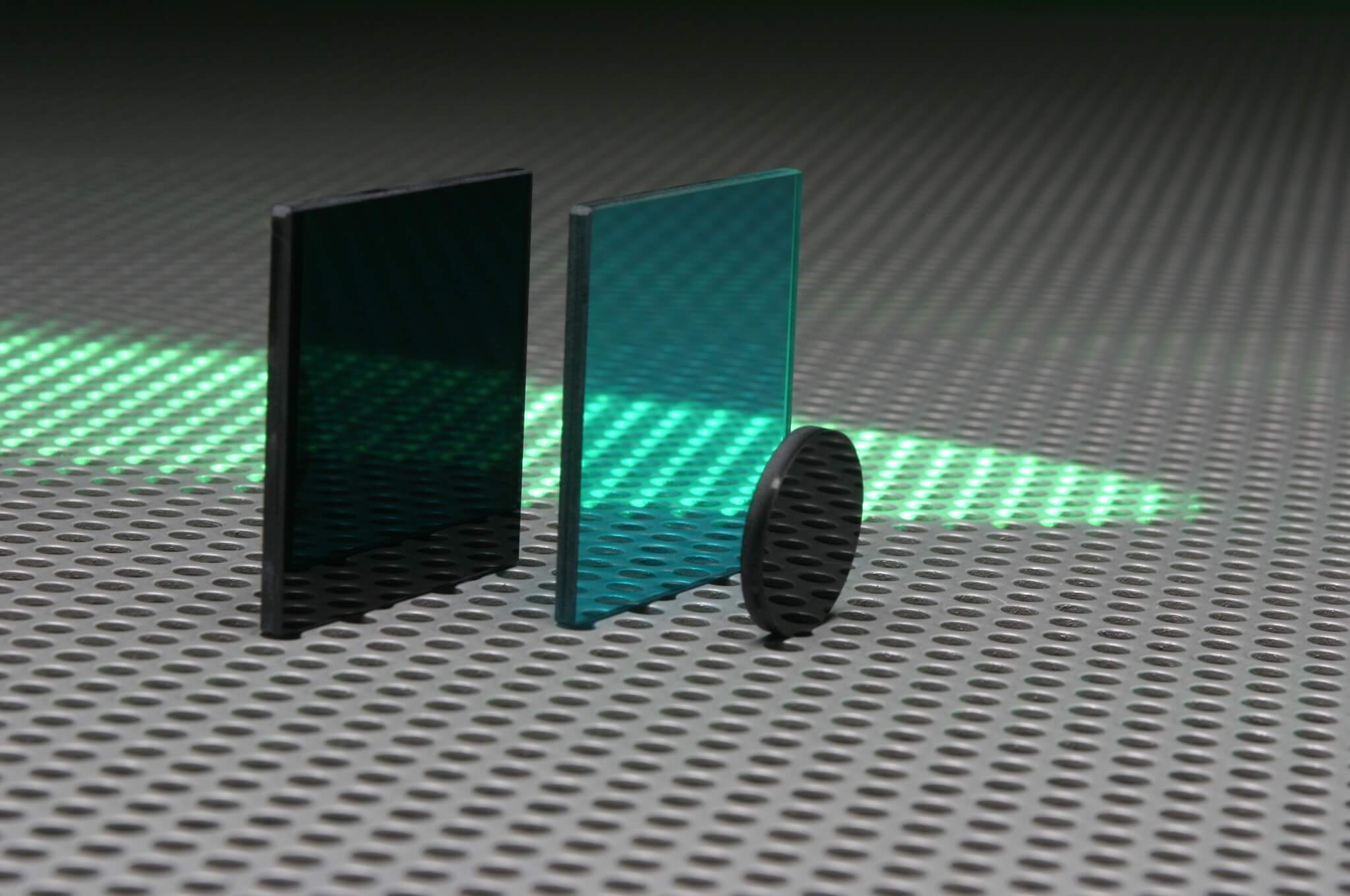
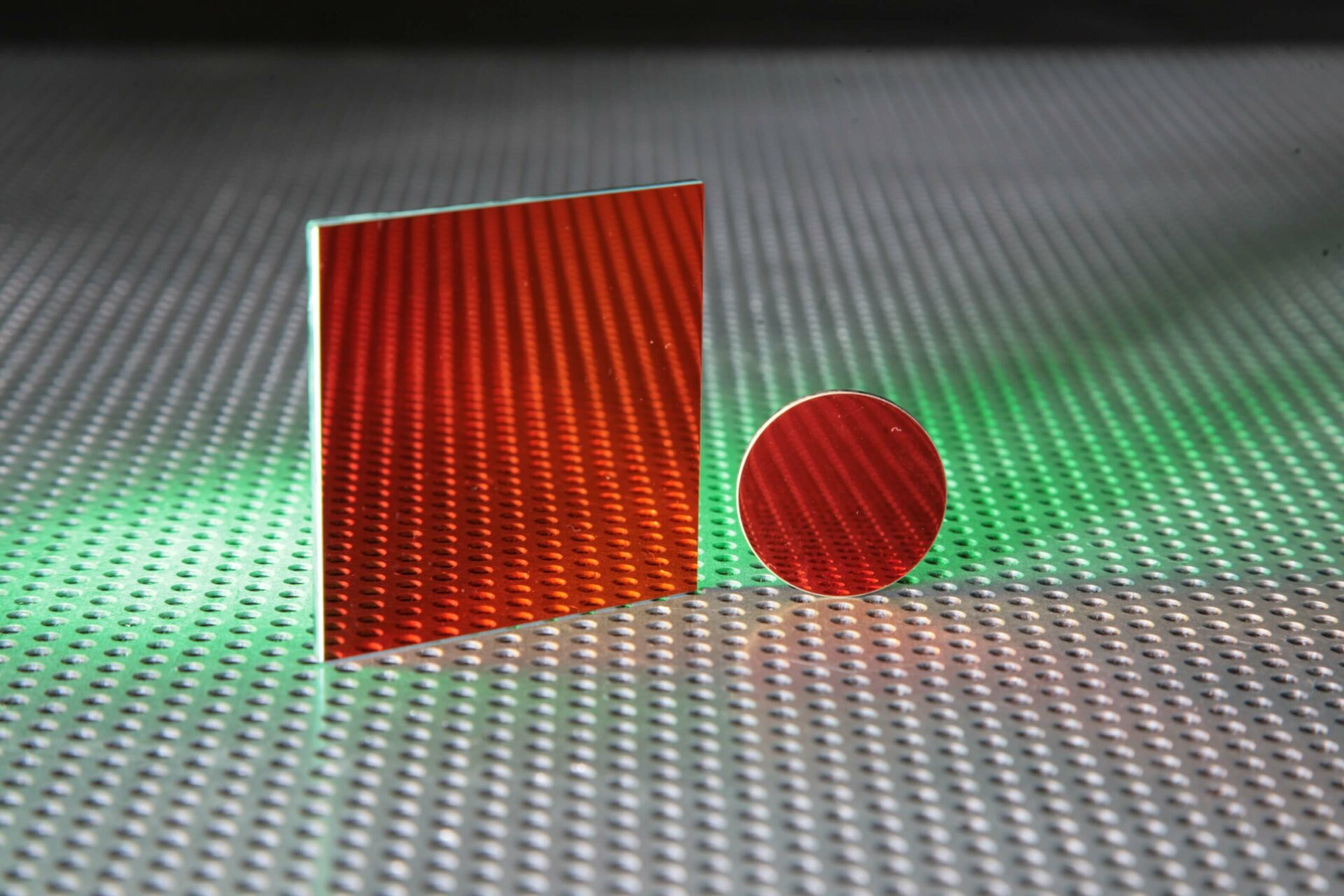
Types of Optical Filters
Within the two classes of filter outlined, it is possible to design and manufacture a huge number of highly specific filters needed to carry out specialised tasks.
Infrared blocking filters: act as heat absorbing filters or heat reflecting. They allow visible light to transmit through the glass while blocking light in the mid-infrared spectrum. This means that the light created by something like a high-power bulb passes through, but the heat doesn’t. We’ve written before about the development of infrared technology in recent years and how it is helping to drive change and innovation in a number of sectors.
Ultraviolet blocking Filters: Like an infrared blocking filter, an ultraviolet blocking (UV) filter enables visible light to pass through. Optical filters of this kind block light in the ultraviolet range of the spectrum which is invisible to the naked eye but can be picked up by film. For this reason, cameras which use film to capture images often deploy an ultraviolet filter to retain the ‘lifelike’ appearance and colour of those images. By blocking harmful ultraviolet light, UV filters can protect sensitive materials and components.
Neutral density filters: filter a part of each wavelength across the light spectrum, making them all less intense. Cameras often make use of filters of this kind as they enable images to be captured even in very bright light conditions.
Schott Colour Glass Filters: Made from Schott glass which has been injected with a dye to achieve a specific colour. The precise colour needed will depend upon the application which the Schott glass filter is being used for. The colours are chosen because they enable a highly attuned degree of light transmission or absorption across different parts of the light spectrum. Optical filters of this kind can be manufactured in the shortpass, longpass or bandpass variety, with a colour selected on the basis of requirements.
Schott Longpass filters: are usually made of coloured glass and transmit those parts of the spectrum with longer wavelengths, such as visible light, infrared and ultraviolet. By blocking the shorter wavelengths they act as emission filters, and can be highly useful in areas such as fluorescence microscopy.
Schott Shortpass filters: operate on the same principle as longpass filters but, in this case, they block the longer wavelengths of the light spectrum while allowing the shorter to pass through. They are also made of coloured glass and can be used in similar applications as longpass filters, but in cases where the opposite effects are required.
Bandpass filters: are the result of a longpass and shortpass filter being combined. The result is a filter which lets through less light overall, but which can be carefully layered in order to allow a highly specific and limited part of the spectrum to pass through.
Dichroic Filters: Dichroic filters are glass filters with thin films which enable them to transmit and reflect specific parts of the visible spectrum. Because the light is reflected rather than absorbed, filters of this kind are extremely useful in applications in which over-heating could be a potential problem, such as laser and imaging applications.
Heat Control Filters: Cold Mirrors are optical filters which separate the heat from the light radiation emitting from the source. They reflect the visible light while transmitting the infrared light, creating a sharp division between visible and infrared lighting. They are widely used in optical and photonic imaging systems.
Cold Control Filters: Hot Mirrors optical filters provide heat protection for components which need to be lit. The filter reflects over 90% of the infrared light while transmitting the light in the visible spectrum. Optical filters of this kind can often be found in laser applications and projection systems. IR cut off filters also offer the same protection and used in many camera and sensing systems.
Monochromatic Filters: Monochromatic filters are those which are manufactured to allow only a narrow wavelength of light – and thus just one colour – to pass through.
Industries which use Optical Filters
Optical filters have a wide range of uses and applications across sectors.
Aerospace and Defence – Optical filters are used in night vision goggles and LiDar (Light Detection and Ranging) equipment used to scan the landscape from height. Filters can also be used in application designed to pick up biohazards on the battlefield and filters for laser rangefinders.
Industrial – Optical filters play a part in moisture detecting and measurement equipment in industries such as food processing, agriculture, gas analysis, paper manufacturing and for the monitoring and control of atmospheric pollution. Filters also play a large role in laser applications used for point-of-sale devices, bar-code scanning and traffic control systems.
Medical – Filters play a key role in high-precision research equipment across neuroscience, cancer research, pharmaceutical development and infectious disease screening. Devices such as endoscopes, patient monitors, DNA analysers, microscopes, cytometers and many more rely on the presence of high precision optical filters.
Research – laboratories around the world rely on optical filters for R&D to create custom-built devices designed to detect minute changes in substances and conditions when developing new products, substances or treatments.
View our full range
To find out more about Optical Filters, view our full stock range of Optical Filters, speak to one of our experts on 01223 420329, or email our sales team at info@uqgoptics.com.




